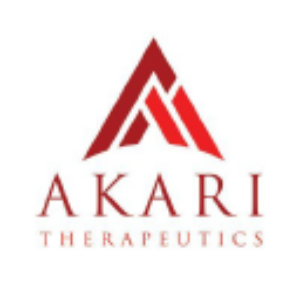Akari Therapeutics Announces New Clinical Data that Show Long-Term Self-Administered Nomacopan is Well-Tolerated and Substantially Reduces Transfusion Dependence in Patients with Paroxysmal Nocturnal Hemoglobinuria (PNH)
Rhea-AI Summary
Akari Therapeutics announced promising results from a long-term study of nomacopan for patients with paroxysmal nocturnal hemoglobinuria (PNH). New data from 19 patients indicates that nomacopan is well-tolerated and has achieved a 79% transfusion independence rate among formerly transfusion-dependent patients treated for at least six months. The study demonstrated a significant reduction in monthly blood transfusions, with a 77% decline in unit requirements. These findings support nomacopan's potential for treating other complement dysregulation disorders, as noted by the company’s CEO.
Positive
- 79% transfusion independence reported for formerly transfusion-dependent PNH patients after 6 months of nomacopan treatment.
- 77% reduction in monthly packed red blood cell transfusions for transfusion-dependent patients on nomacopan.
- No major adverse vascular events reported among 19 patients treated over 30 cumulative patient-years.
- Well-tolerated with only one serious adverse event (urinary tract infection) considered possibly related to treatment.
Negative
- None.
News Market Reaction
On the day this news was published, AKTX gained 5.26%, reflecting a notable positive market reaction.
Data tracked by StockTitan Argus on the day of publication.
- New data accrued from 19 PNH patients treated for over 30 cumulative patient-years show that self-administered nomacopan is well-tolerated and substantially reduces transfusion dependence.
- Transfusion independence of
79% reported for 14 formerly transfusion dependent PNH patients treated with nomacopan for at least six months. This compares favorably to published data which reports that between50% and60% of transfusion dependent PNH patients treated with eculizumab therapy became transfusion independent.
- The long-term PNH data supports nomacopan’s therapeutic potential in other diseases where complement dysregulation also plays a role, including Akari’s Phase III trials in bullous pemphigoid (BP) and pediatric HSCT-TMA1 where both complement (C5) and leukotriene (LTB4) are implicated
NEW YORK and LONDON, Dec. 11, 2020 (GLOBE NEWSWIRE) -- Akari Therapeutics, Plc (Nasdaq: AKTX), a late-stage biopharmaceutical company focused on innovative therapeutics to treat orphan autoimmune and inflammatory diseases where the complement and/or leukotriene systems are implicated, announces new data on the efficacy and safety profile of long-term self-administration of nomacopan for treatment of patients with PNH.
“The data we have accrued on the use of self-administered nomacopan in PNH demonstrate that the drug is well tolerated with a positive clinical response, supporting nomacopan’s potential for both short and long-term use across our other clinical programs,” said Clive Richardson, Chief Executive Officer of of Akari Therapeutics. “We are now leveraging this positive PNH data to explore regional partnering opportunities.”
The data from 19 PNH patients2 treated for a median of 18.5 months are derived from the Phase II COBALT trial (n=8 patients), the Phase II trial which specifically recruited eculizumab-resistant patients (n=2 patients), the Phase III CAPSTONE trial (n = 9 patients), and from the long-term safety study CONSERVE (n = 15), which accepted patients from the Phase II and Phase III studies. Sixteen of the 19 PNH patients were transfusion dependent prior to treatment with nomacopan, of whom 14 were treated with nomacopan for six months or more.
The data show that long term self-administration of nomacopan by PNH patients:
- Reduced transfusion dependence (the most clinically relevant efficacy endpoint) by
79% in the 14 formerly transfusion dependent patients treated with nomacopan for at least six months, with a median time since last transfusion of 13.8 months. - In the Phase III CAPSTONE trial, all patients dosed with nomacopan (n=4) were transfusion independent for the six-month treatment period while all patients on placebo (n=5) remained transfusion dependent, which was the primary end point of the study. The difference is statistically significant at the p=0.034 level. The active and placebo groups were very similar in terms of transfusion requirements prior to treatment.
- The number of units of packed red blood cells (U PRBC) received per month declined in all 16 of the transfusion dependent PNH patients by
77% from a mean value of 0.91 U PRBC per month prior to treatment with nomacopan to 0.21 U PRBC per month on nomacopan3. - The three PNH patients who were transfusion independent prior to treatment with nomacopan remained transfusion independent on nomacopan.
- None of the 19 PNH patients treated with nomacopan for over 30 cumulative patient-years had a reported major adverse vascular event (MAVE).
- There has only been a single reported serious adverse event (urinary tract infection) in one patient that was considered possibly related to nomacopan. None of the patients has had a meningococcal infection reported.
- Terminal complement activity was below the lower limit of assay quantification (10 CH50 U Equivalent/ml) in all patients at all time points measured during long-term treatment on nomacopan.
Transfusion independence as used above is defined as a period of at least six months without transfusion. This duration is considered clinically important as it is the same duration of transfusion independence as used for the primary endpoint in CAPSTONE and also the pivotal studies of eculizumab and ravulizumab that led to approval of these drugs for the treatment of PNH.
The
The transfusion data from the CONSERVE long term study is considered particularly important because it provides “real world” data from a total of 15 patients on nomacopan treatment as a long-term self-administered therapy. In CONSERVE, clinicians were free to follow their normal transfusion practices and patients were only scheduled to visit the clinic at three to six monthly intervals, mimicking “real world” clinical practice.
Dr. Austin Kulasekararaj, Lead PNH clinician at King’s College Hospital, London, UK, the principal investigator on the long-term CONSERVE safety and efficacy study of nomacopan in patients with PNH, commented, “The CAPSTONE study was originally designed to achieve approximately
The Company’s lead programs for nomacopan are focused on diseases with no approved treatments, including BP and pediatric HSCT-TMA. Data from the Company’s PNH programs (CAPSTONE and CONSERVE), while discontinued, support the Company’s main clinical programs, all of which have complement dysregulation playing an important role.
Full clinical details on all 19 PNH patients treated with nomacopan will be provided in a manuscript that is currently in preparation.
1Hematopoietic stem cell transplant-related thrombotic microangiopathy
219 PNH patients: 13 male and 6 female; median age 39; age range 22 – 69. Three of the 19 patients had a history of thrombosis and 3 other patients a history of aplastic anaemia.
3The number of U PRBC received per month was simply derived by dividing the total number of U PRBC received by all transfusion dependent patients in the 12 months before nomacopan treatment (n = 16; total U PRBC = 174; total months 192), and by dividing the total number of U PRBC received by the same patients while on nomacopan (n = 16; total U PRBC = 65; total months 313). In the Wook Lee et al., 2019 study on eculizumab and ravulizumab efficacy in PNH patients the authors reported that the mean total number of U PRBC transfused during the first 6-month treatment period was 4.8 (SD + 5.1) on ravulizumab and 5.6 (SD + 5.9) on eculizumab.
About Akari Therapeutics
Akari is a biopharmaceutical company focused on developing inhibitors of acute and chronic inflammation, specifically for the treatment of rare and orphan diseases, in particular those where the complement (C5) or leukotriene (LTB4) systems, or both complement and leukotrienes together, play a primary role in disease progression. Akari’s lead drug candidate, nomacopan (formerly known as Coversin), is a C5 complement inhibitor that also independently and specifically inhibits leukotriene B4 (LTB4) activity.
Cautionary Note Regarding Forward-Looking Statements
Certain statements in this press release constitute “forward-looking statements” within the meaning of the Private Securities Litigation Reform Act of 1995. You should not place undue reliance upon the Company’s forward looking statements. Except as required by law, the Company undertakes no obligation to revise or update any forward-looking statements in order to reflect any event or circumstance that may arise after the date of this press release. These forward-looking statements reflect our current views about our plans, intentions, expectations, strategies and prospects, which are based on the information currently available to us and on assumptions we have made. Although we believe that our plans, intentions, expectations, strategies and prospects as reflected in or suggested by those forward-looking statements are reasonable, we can give no assurance that the plans, intentions, expectations or strategies will be attained or achieved. Furthermore, actual results may differ materially from those described in the forward-looking statements and will be affected by a variety of risks and factors that are beyond our control. Such risks and uncertainties for our company include, but are not limited to: needs for additional capital to fund our operations, our ability to continue as a going concern; uncertainties of cash flows and inability to meet working capital needs; an inability or delay in obtaining required regulatory approvals for nomacopan and any other product candidates, which may result in unexpected cost expenditures; our ability to obtain orphan drug designation in additional indications; risks inherent in drug development in general; uncertainties in obtaining successful clinical results for nomacopan and any other product candidates and unexpected costs that may result therefrom; difficulties enrolling patients in our clinical trials; our ability to enter into collaborative, licensing, and other commercial relationships and on terms commercially reasonable to us; failure to realize any value of nomacopan and any other product candidates developed and being developed in light of inherent risks and difficulties involved in successfully bringing product candidates to market; inability to develop new product candidates and support existing product candidates; the approval by the FDA and EMA and any other similar foreign regulatory authorities of other competing or superior products brought to market; risks resulting from unforeseen side effects; risk that the market for nomacopan may not be as large as expected; risks associated with the COVID-19 pandemic; risks associated with the SEC investigation; inability to obtain, maintain and enforce patents and other intellectual property rights or the unexpected costs associated with such enforcement or litigation; inability to obtain and maintain commercial manufacturing arrangements with third party manufacturers or establish commercial scale manufacturing capabilities; the inability to timely source adequate supply of our active pharmaceutical ingredients from third party manufacturers on whom the company depends; unexpected cost increases and pricing pressures and risks and other risk factors detailed in our public filings with the U.S. Securities and Exchange Commission, including our most recently filed Annual Report on Form 20-F filed with the SEC. Except as otherwise noted, these forward-looking statements speak only as of the date of this press release and we undertake no obligation to update or revise any of these statements to reflect events or circumstances occurring after this press release. We caution investors not to place considerable reliance on the forward-looking statements contained in this press release.
Investor Contact:
Peter Vozzo
Westwicke
+1 (443) 213-0505
peter.vozzo@westwicke.com
Media Contact:
Sukaina Virji / Lizzie Seeley
Consilium Strategic Communications
+44 (0)20 3709 5700
Akari@consilium-comms.com







